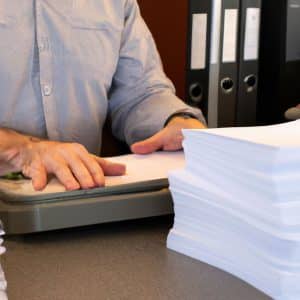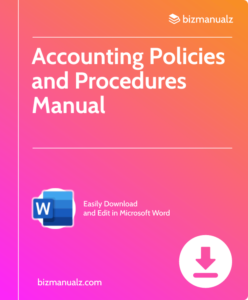How To Become a CPA

Gaining the esteemed title of Certified Public Accountant (CPA) may seem like a daunting task. However, with the right guidance and determination, anyone can be successful! CPAs are respected professionals within the field of accounting who possess knowledge in financial reports, taxes, auditing, and consulting. They are essential for ensuring accuracy and honesty in financial records for people, businesses, and organizations. How to become a CPA.
Becoming a CPA
To start this journey, aspiring CPAs must fulfill the educational requirements set by their state board of accountancy. This involves getting a bachelor’s degree in accounting or a related area from a certified university or college. Some states also require extra classes in ethics or commercial law.
Once they have finished their education, aspiring CPAs need to gain practical experience. This is usually done by working with a licensed CPA and obtaining a certain amount of hours. The type of experience will differ depending on the state’s regulations.
After meeting educational and experiential requirements, aspiring CPAs can take the CPA exam. It is split into four sections: Auditing and Attestation (AUD), Business Environment and Concepts (BEC), Financial Accounting and Reporting (FAR), and Regulation (REG). Each section tests the candidate’s understanding of different parts of accounting and business.
To succeed in becoming a CPA, dedication and concentration are essential. Here are some tips to help you on your path:
- Make a study plan: Create a structured plan that covers all four sections of the CPA exam. Allocate time for each section depending on its weightage and your level of comfort with the material.
- Use review courses: Invest in trustworthy review courses or study materials to improve your knowledge of key concepts and prepare for the exam. These classes normally provide practice questions and simulations to imitate the real exam environment.
- Join study groups: Work with other aspiring CPAs by joining study groups or online forums. Interacting with peers can widen your outlook, answer questions, and offer valuable insights.
- Manage time: Managing your time properly during the exam is important. Practice time management by doing mock exams and setting time limits for each section.
- Stay informed: The field of accounting is always changing, with new regulations and standards being added regularly. Keep up with these changes by subscribing to relevant publications or attending industry conferences.
By following these tips and being dedicated to your goal, you can conquer the challenges of becoming a CPA. Remember, the journey may be tough, but the rewards of earning this designation are worth it. Best of luck on your quest to become a Certified Public Accountant!
What is a CPA?
A CPA stands for Certified Public Accountant. It’s a professional title given to those who’ve met qualifications and gotten a license to practice accounting. CPAs are experts in many accounting areas, such as financial planning, budgeting, tax preparation, and auditing.
They use their knowledge to help businesses and individuals with financial advice and keeping accurate records. CPAs analyze data, interpret financial statements, and develop strategies for better financial performance.
To become a CPA, you must take an exam from your state boards of accountancy. This covers topics like auditing, taxation, ethics, business law, and financial accounting. You must also meet educational requirements and get accounting experience.
Once licensed, CPAs can work in public accounting firms, government agencies, corporations, nonprofit organizations, or start their own practice. There’s a big demand for CPAs because they know how to help businesses with complex financial regulations and make decisions with correct financial info.
It was in 1887 that the American Association of Public Accountants (AAPA) was first created – the first professional organization for accountants. It merged with other societies to form the AICPA, or American Institute of Certified Public Accountants. This organization has made a huge impact on the accounting industry. Now, the AICPA is still working to provide resources and support for CPAs and uphold ethical standards in the field.
Importance of becoming a CPA
Gaining a CPA designation is extremely beneficial. It offers prestige, higher pay, and credibility. Companies hiring CPAs have more trust in their expertise and accounting know-how. Plus, CPAs can work in multiple fields: auditing, taxation, consulting, and finance. This versatility provides them with the chance to become well-rounded.
Also, CPAs must stay up to date on the latest regulations, laws, and trends. This keeps them at the top of their field. A great tip for those aspiring to become a CPA is to build relationships within the accounting world. Networking events or joining organizations can offer invaluable connections and career advice.
Steps to become a CPA
To get the Certified Public Accountant (CPA) badge, you’ll need to follow the following steps. These will help you get this respected professional certification in accounting.
- Get a Bachelor’s Degree: Start by studying accounting or something related. This will give you the base you need for a successful career as a CPA.
- Meet Education Needs: Make sure you meet the educational requirements given by your state board of accountancy. You may need to do extra classes, such as advanced accounting or business.
- Get Relevant Work Experience: Most states want you to have work experience with a licensed CPA. This gives you practical skills and a better understanding of accounting.
- Prepare for the CPA Exam: Study hard for the hard CPA exam, which has four sections: Auditing and Attestation (AUD), Business Environment and Concepts (BEC), Financial Accounting and Reporting (FAR), and Regulation (REG).
- Pass the CPA Exam: You must pass all four sections of the CPA exam within the time period set by the state board. Each section must get a score set by the board to move forward.
- Get Your CPA License: Once you’ve passed the exam, apply for your license through the state board. The requirements to get the license change from state to state, so make sure to research what’s needed.
It takes hard work and ongoing learning to become a CPA. You need to keep learning and stick to ethical standards throughout your career. An example of how important this is the American Institute of Certified Public Accountants (AICPA). They’ve shaped the accounting profession and pushed for high standards in financial reporting and ethical practice since 1887.
Benefits of becoming a CPA
Gaining a Certified Public Accountant (CPA) qualification can give you plenty of advantages that can progress your financial career. Here are the top three:
- More Job Prospects: You can access a lot of job openings in both public and private sectors if you become a CPA. Companies highly value CPAs for their skills in accounting and auditing. This means you are likely to be seen as a favorable candidate for roles such as Financial Analyst, Tax Consultant, and Senior Accountant.
- Enhanced Money Making Possibilities: CPAs usually have the potential to get higher earnings than their non-certified counterparts. This is because the knowledge and abilities they learn through the CPA curriculum make them popular in the industry, helping them to get better salaries and compensation packages.
- Greater Professional Reputation: Becoming a CPA shows that you are committed to being excellent and professional in accounting. This respected certification gives clients, colleagues, and employers assurance and trust. It proves your proficiency in financial reporting, ethics, rules, and other areas needed for success in accounting.
Apart from these advantages, getting CPA certification also offers rewards geared to individuals’ requirements and circumstances. Whether it’s the chance for a balanced lifestyle or increased job safety, becoming a CPA has lots of benefits that you can tailor to your own aims.
To make the most of these gains, do these things:
- Gain Relevant Experience: Although you need to pass an exam to get a CPA license, gaining practical knowledge is also essential. Look for internships or entry-level positions at well-known accounting firms or companies so you can apply your theoretical knowledge and develop vital abilities.
- Take Continuing Education: Accounting is constantly changing with amendments in regulations, tax laws, and technology advancements. Keep up-to-date by taking part in continuing education programs that give you recent updates and help you understand new trends in the industry. Doing this will make you more employable.
- Network Wisely: Building connections with professionals in the accounting community can open doors to great opportunities. Go to industry events, join professional organizations, and join online networking platforms to build a strong network of peers and mentors. These relationships can provide advice, refer job openings, and offer support in your career journey.
By doing all this, you can make sure that you have a successful career as a CPA and maximize the rewards that come with this esteemed credential.
Example of a CPA
A CPA, or Certified Public Accountant, is a pro who has expertise in accounting and handles financial matters for people, businesses, and organizations. CPAs are much sought after for their great knowledge and understanding of financial regulations, tax laws, and auditing processes. To better understand the role of a CPA, let’s take a closer look. An example:
- Financial Analysis: Examining financial data to give helpful info to clients or organizations.
- Taxation: Helping people or businesses with complex tax laws, making sure compliance and reducing tax liabilities.
- Auditing: Doing internal and external audits to examine financial records for correctness and agreement to regulatory standards.
- Budget Planning: Constructing complete budgets based on financial analysis and forecasting to help organizations reach their financial goals.
- Consultancy Services: Offering expert advice on mergers, acquisitions, investments, and other financial decisions to help clients make informed choices.
These are just a few examples of what CPAs offer. With their great knowledge and experience in accounting principles, CPAs help individuals and businesses manage their finances well. CPAs have a long history since the early 20th century. Accounting got more complex and CPAs were needed to handle financial matters accurately.
Regulating bodies like the American Institute of Certified Public Accountants (AICPA) were created to regulate certification standards for CPAs. With time, the demand for CPAs went up as more organizations realized their value in terms of financial expertise and regulatory compliance. Now, CPAs are trusted advisors in the financial industry, and play a key role in keeping financial reporting honest and transparent.
Become a CPA
In brief: becoming a CPA means taking the CPA exam and reaching the educational and working requirements. It’s a difficult process to guarantee that accountants possess the correct capacities and information for managing intricate financial tasks.
We have discovered the meaning of a CPA, examined the means of becoming one, and provided examples of how CPAs support the accounting field. We have also shown the necessity of further education for CPAs to remain familiar with new regulations and industry standards.
Finally, it is worth noting that, according to the AICPA, there are around 650,000 certified CPAs in the USA. This figure reveals the increasing demand for skilled personnel in accounting, making it a feasible career option for those interested in finance and numbers.
Frequently Asked Questions
 Q: What is a CPA?
Q: What is a CPA?
A: CPA stands for Certified Public Accountant. It is a professional designation for accountants who have met specific education requirements and passed the CPA exam.
Q: How do I become a CPA?
A: To become a CPA, you need to fulfill the educational requirements which typically include a bachelor’s degree in accounting or a related field. Then, you must pass the Uniform CPA Exam and meet any additional state-specific requirements.
Q: What is the Uniform CPA Exam?
A: The Uniform CPA Exam is a rigorous exam administered by the American Institute of Certified Public Accountants (AICPA). It tests candidates on various accounting topics to determine their knowledge and competence in the field.
Q: What are the state-specific requirements to become a CPA?
A: State-specific requirements can vary, but they usually include completing a certain number of work experience hours under a licensed CPA and meeting a minimum age requirement. It is important to check the specific requirements of the state where you plan to practice.
Q: How long does it take to become a CPA?
A: The time required to become a CPA varies depending on individual circumstances. On average, it takes about 4-5 years to complete the educational and exam requirements, including fulfilling any work experience requirements.
Q: Can you provide an example of how a CPA may be helpful?
A: Sure! Let’s say you run a small business and need assistance with managing your finances, tax planning, and ensuring compliance with financial regulations. Hiring a CPA can provide you with expert advice and guidance, helping your business thrive and avoid potential pitfalls.
















Leave a Reply